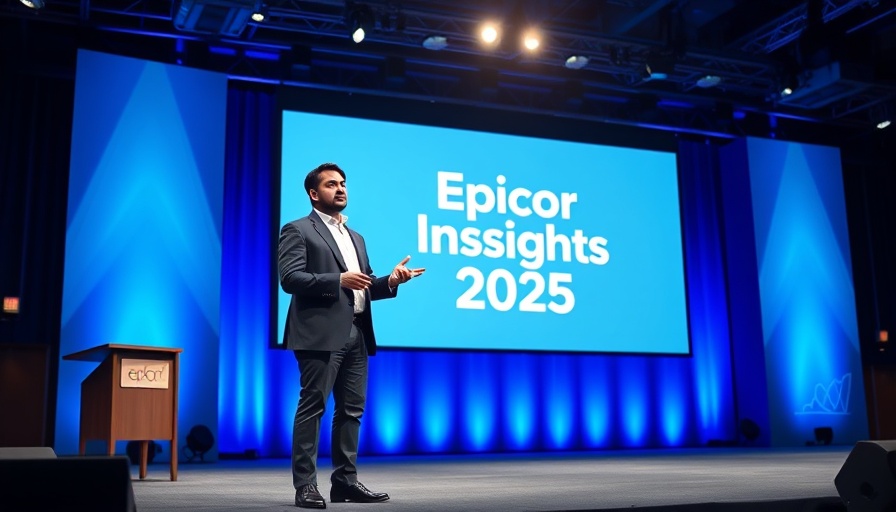
AI in Supply Chains: A Game Changer for Global Logistics
In a world increasingly shaped by economic uncertainty, the role of artificial intelligence (AI) in supply chains has never been more critical. At the recent Epicor Insights 2025 held in Las Vegas, industry leaders gathered to explore how AI can not only enhance operational efficiency but also mitigate the impacts of global supply chain shocks.
The Skills Gap: An Invisible Threat
Despite high job vacancies in supply chain roles, the challenge lies not merely in filling positions but in addressing the skilled labor shortages that can disrupt production. According to Vaibhav Vohra, President of Epicor Software Corp, approximately 5 million supply chain jobs remain unfilled in the U.S. alone. Additionally, 25% of manufacturing plants are reportedly underperforming due to a lack of skilled workers. As companies struggle not just with labor shortages but also with securing materials like rare earth elements and lumber, achieving resilience in logistics has become a complex task.
A Pragmatic AI Approach: Cutting Through Complexity
During the conference, Steve Murphy, the CEO of Epicor, emphasized the need for organizations to forge ahead with AI adoption as an augmentation tool rather than a replacement for front-line workers. By focusing on the specific challenges faced by individual manufacturers, Epicor encourages a strategy described as 'AI-forward' innovation. This means that rather than an overwhelming overhaul, AI solutions are designed to target particular pain points within the customer's supply chain process.
Highlighting Successful Use Cases
A focus on context-specific AI development was prevalent among Epicor's clientele, many of whom are midsized manufacturers operating with revenue between $500 million and $2 billion. By identifying specific problem areas and testing AI solutions at the site level, companies have found success in utilizing AI technologies effectively. This incremental approach not only ensures relevance but also enhances operational productivity.
Preparing for Future Supply Chain Disruptions
As we move forward, the adaptability afforded by AI takes center stage. Companies that implement AI-driven solutions can respond more swiftly to disruptions, making them better equipped to handle challenges such as economic downturns or resource scarcity. With an estimated 21% of organizations lacking visibility beyond their Tier 1 suppliers, enhancing this transparency will become increasingly vital.
Strategic Insights for Decision-Makers
Executives and senior managers must recognize the importance of investing in AI capabilities for supply chain management. The need for strategic foresight can guide organizations in navigating complexity while achieving efficiency. As Epicor's approach illustrates, successful AI integration isn't about technology for technology's sake; it’s about solving real business problems with vetted, actionable insights.
If you want your organization to be at the forefront of supply chain innovation and resilience, consider how you can harness AI to transform your operational strategies.
 Add Row
Add Row  Add
Add 




Write A Comment